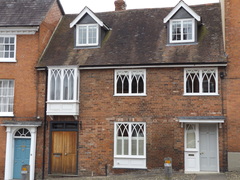It may seem unromantic, but it really does make sense for couples who live together to see a solicitor so that the basis on which they occupy their homes can be put into writing. One case in which that sadly did not happen involved a former couple who lived under the same roof for 12 years but ended up at loggerheads.
 The dispute concerned a four-bedroom house worth up to £280,000. The woman was its sole owner on paper, having bought out her ex-husband following their divorce. The man subsequently moved in with her and her two daughters and they lived together for over a decade before the relationship came to an end.
The dispute concerned a four-bedroom house worth up to £280,000. The woman was its sole owner on paper, having bought out her ex-husband following their divorce. The man subsequently moved in with her and her two daughters and they lived together for over a decade before the relationship came to an end.
The man argued that he was entitled to a stake in the property, having taken out more than £40,000 in bank loans to pay for substantial renovations to it. She, however, claimed that he had spent most of that money on himself. He had made no contribution to household outgoings and, as a much higher earner than him, she estimated that she had spent £750,000 during the relationship.
The First-tier Tribunal (FTT) preferred the man’s account, however, and ruled that he was entitled to an equitable share of the property. Although the extent of that share remained to be assessed, the FTT attempted to head off further litigation by expressing the view that it should be about 15 per cent.
In upholding the woman’s appeal against that ruling, the Upper Tribunal (UT) noted that the man bore the burden of proving his case. He had presented little supporting evidence and the FTT had given no explanation for its conclusion that he was telling the truth and that the woman was not. The FTT’s finding that he had spent more than the total of the bank loans on the property was irrational.
The UT noted that the FTT had ignored the perfectly sensible explanation that such contributions as the man had made were in recompense for his free occupation of the house. The UT declared that the man had no beneficial interest in the property and directed that a restriction he had registered against it be lifted.

